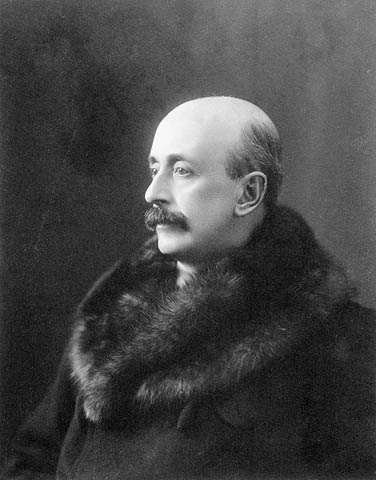 |
| The Stampeders originally were the Bronks, glad they changed the name. Sounds like a horse snorting. |
I type this as a sad and dejected Eskimo fan with a toque on sits down across from me in the coffee shop. Next time guys!
It will be the 102st Grey Cup, the Canadian Football League's Superbowl, filled with history and pageantry in Vancouver. I really didn't pay much attention to the history of the game in Canada until the game's centennial in 2010. And while I learned a lot, I noticed the media had only a few words on the imperialist father of the Grey Cup, Albert Grey.
Whose this Grey guy anyways?
 |
| Lord Albert Grey, wearing fur because he is in Canada. Picture:LAC |
At this time, Canada was trying to forge itself as an independent nation, but also keep their British overloads happy. Canada was a dominion, meaning we still had to look to mother Britain for the okay to all our laws. This was alright to Grey, who liked to impose his ideas on others, be it in South Africa or in Canada. Funny enough his hard core temperance ideas and pro church stance did not go down well in Canada. He had to be reigned in a lot by Prime Minster Laurier, because even back then Canadians really just liked life without too much interruption. His idea that Canada should be the crowning jewel in British imperialism meant he pushed hard for a navy and a larger military as a tool for expansionism.
Grey's ability to cock up diplomatically was of epic legend. One failure was trying to get Newfoundland into confederation with Canada in 1905: he acted more like a bully than a appeaser and so the newfies told him to bugger off. The biggest failure was the Plains of Abraham in 1908: he wanted to purchase the Plains of Abraham
and turn them into a national park under a battlefield commission for Quebec's 300 year birthday.
One thing that he was successful at was smoothing over the rough waters between Canada and American after the latter purchased Alaska from the Russians. He also promoted, supported and loved sports and the arts, assisting a ton of organizations in Ontario and Quebec during his tenure.His endeavours to elevate the project into a grand imperial enterprise fell short but nevertheless made it difficult to sell in Quebec. In the end Laurier was persuaded only by the intervention of Quebec mayor Georges Garneau to pass the potentially controversial legislation in March 1908 creating the National Battlefields Commission. During this campaign Grey had discovered a citizens’ committee making modest plans to mark the tercentenary of Samuel de Champlain’s founding of Quebec. Fresh from his battlefield victory, he decided to transform the event into an international celebration of Franco-Anglo-American friendship. The visit of the Prince of Wales, the Atlantic fleet, American and French warships, and a host of official representatives required coordination, diplomatically, by the governor general’s office and took arrangements well out of the hands of the local committee. In addition, the elaborate historical pageants promoted by Grey and staged in July threatened, despite their interpretative accommodations, to turn the event into a celebration of the arrival of British general James Wolfe in 1759 rather than Champlain. The criticism voiced was understandable, but not to Grey, who blamed the reaction on an unenlightened element in the Catholic church.
Why did he like football so much?
Grey believed that cultural institutions were an excellent vehicle to promote imperialism. One of these paths was through sports.His interest in physical well-being came from his work in social reform and imperial wholesomeness, as well as from his own attachment to sport and the outdoors. He promoted overseas clubs backed the Boy Scout and cadet movements, and persuaded Lord Strathcona to amend the terms of his trust fund (set up in 1909 to promote physical and military training in Canadian public schools) to permit the remuneration of women cadet instructors.
He donated various cups to all sorts of sports, but the biggest was to the new amateur rugby football league in 1909. Originally he wanted to donate a cup to the newly formed Canadian hockey club but was beaten to it by Sir Allen.
The first winners of the Grey Cup was the University of Toronto who trounced Toronto Parkdale 26-6.

But Grey soon forgot about his promise. There was no trophy to present
when the University of Toronto won but they did receive it in time for their photo. Weeks before the game, organizers sent a letter to the governor general
reminding him of his promise, according to the Canadian Football Hall of Fame
and Museum. A hurried order was sent to silversmiths to create the
sterling silver cup with a wooden base. The total bill: $48.
Having researched so much on Albert Grey now, I wonder what he'd think of modern Canada, our looking more to America for our policies, and our attitudes towards our colonial past that gives us so much shame and trouble now? More importantly, what would he think of our CFL now, with multi-ethnic players and owners, and a lack of imperialistic fevour?
Having researched so much on Albert Grey now, I wonder what he'd think of modern Canada, our looking more to America for our policies, and our attitudes towards our colonial past that gives us so much shame and trouble now? More importantly, what would he think of our CFL now, with multi-ethnic players and owners, and a lack of imperialistic fevour?
No comments:
Post a Comment